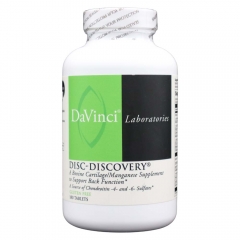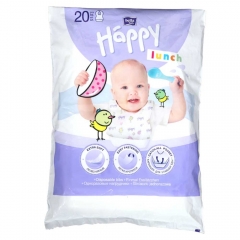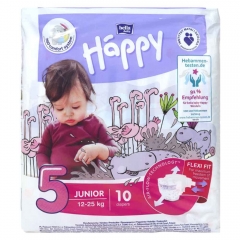-
 Thanh toán đa dạng, linh hoạtChuyển khoản ngân hàng, thanh toán tại nhà...
Thanh toán đa dạng, linh hoạtChuyển khoản ngân hàng, thanh toán tại nhà... -
 Miễn Phí vận chuyển 53 tỉnh thànhMiễn phí vận chuyển đối với đơn hàng trên 1 triệu
Miễn Phí vận chuyển 53 tỉnh thànhMiễn phí vận chuyển đối với đơn hàng trên 1 triệu -
 Yên Tâm mua sắmHoàn tiền trong vòng 7 ngày...
Yên Tâm mua sắmHoàn tiền trong vòng 7 ngày...
Your Face Never Lies: What Your Face Reveals About You and Your Health, an Introduction to Oriental Diagnosis
-

- Mã sản phẩm: 0895292149
- (124 nhận xét)

- ASIN:0895292149
- Publisher:Avery; 6th Printing edition (May 1, 1983)
- Language:English
- Paperback:96 pages
- ISBN-10:9780895292148
- ISBN-13:978-0895292148
- Item Weight:3.99 ounces
- Dimensions:6 x 0.25 x 8.97 inches
- Best Sellers Rank:#525,057 in Books (See Top 100 in Books) #247 in Ayurveda Medicine #433 in Health, Mind & Body Reference #734 in Grooming & Style
- Customer Reviews:4.4 out of 5 stars 124Reviews

Mô tả sản phẩm
Product Description
A quick glance in the mirror can tell you much about your health. The shape of your face alone reveals a great deal. Your posture, skin tone, facial structures, and handwriting can tell you even more. They all reflect the vitality of your constitution at birth, the quality of your diet, and the strengths and weaknesses of your internal organs.
Your Face Never Lies will lead you beyond the narrow limits of western medicine. Much more than a tool for helping those who are ill, the ancient skill described by macrobiotics expert Michio Kushi, will help you to better understand yourself, your life, and your relationship with nature. And, through the enhancement of your inherent observational abilities, this time-proven technique can begin to benefit you and those around you in only a few days.
About the Author
Michio Kushi (1926–2014) was a leading figure in the macrobiotic movement. He began his study of macrobiotics more than fifty years ago and went on to establish the Kushi Institute in Massachusetts. As the leading voice in the macrobiotic community, he was the bestselling author of more than twenty books on the macrobiotic lifestyle.
Excerpt. © Reprinted by permission. All rights reserved.
Introduction
Oriental Diagnosis
The medicine of China, Japan and other countries of the Far East is among the oldest in the world. This medicine can teach us a great deal that can be practically applied today. The basic philosophy of Oriental medicine is the complementary opposite of the kind of medicine currently practised in the West. Western medicine, with its emphasis on the treatment of symptoms by drugs and surgery, is increasingly powerless to cope with the rising tide of degenerative illness that now threatens to engulf the industrialised world. Clearly we need to supplement our mainly symptomatic medicine with a medicine that is preventive in direction and humane and economical in application. Oriental medicine can contribute greatly to filling this need.
The standard Oriental writings on the causes of disease stressed the relationship between an individual’s health and his or her diet, activity, spiritual attitude and total environment. No single aspect of human life was considered separate from another. The biological, psychological and spiritual were seen as related aspects of the totality. The practitioner was an adviser and teacher who could point out the source of a health problem and give practical suggestions for changes in life style that could ameliorate the problem at its source.
In Western medicine, diagnosis identifies a disease by observation of its symptoms. The experienced Oriental diagnostician, however, can foresee the development of sickness before the sick person has specific symptoms such as pain. The principal tool of Oriental diagnosis is physiognomy — the art of judging a person “from the features of the face or the form and lineaments of the body generally” (Oxford English Dictionary). The basic premise of Oriental physiognomy is that each individual represents a walking history of his or her development. The strengths and weaknesses of our parents, the environment we were brought up in, and the food we have eaten are all expressed in our present condition. Our posture, the colour of our skin, the tone of our voice and other traits are externalisations of the condition of our blood, organs, nervous system, and skeletal structure, which in turn are the result of our heredity, diet, environment, and activity.
The secret of diagnostic skill is to recognise the signs of a particular set of changes before they become serious — to see the signs that stones are developing in the kidneys, that the heart is becoming expanded, or that a cancer is developing — even before these symptoms bring pain and discomfort. This type of diagnosis depends completely on the practitioner developing his or her own sensitivity and understanding fully the principles that underlie the techniques.
- Mua astaxanthin uống có tốt không? Mua ở đâu? 29/10/2018
- Saffron (nhụy hoa nghệ tây) uống như thế nào cho hợp lý? 29/09/2018
- Saffron (nghệ tây) làm đẹp như thế nào? 28/09/2018
- Giải đáp những thắc mắc về viên uống sinh lý Fuji Sumo 14/09/2018
- Công dụng tuyệt vời từ tinh chất tỏi với sức khỏe 12/09/2018
- Mua collagen 82X chính hãng ở đâu? 26/07/2018
- NueGlow mua ở đâu giá chính hãng bao nhiêu? 04/07/2018
- Fucoidan Chính hãng Nhật Bản giá bao nhiêu? 18/05/2018
- Top 5 loại thuốc trị sẹo tốt nhất, hiệu quả với cả sẹo lâu năm 20/03/2018
- Footer chi tiết bài viết 09/03/2018
- Mã vạch không thể phân biệt hàng chính hãng hay hàng giả 10/05/2023
- Thuốc trắng da Ivory Caps chính hãng giá bao nhiêu? Mua ở đâu? 08/12/2022
- Nên thoa kem trắng da body vào lúc nào để đạt hiệu quả cao? 07/12/2022
- Tiêm trắng da toàn thân giá bao nhiêu? Có an toàn không? 06/12/2022
- Top 3 kem dưỡng trắng da được ưa chuộng nhất hiện nay 05/12/2022
- Uống vitamin C có trắng da không? Nên uống như thế nào? 03/12/2022
- [email protected]
- Hotline: 0909977247
- Hotline: 0908897041
- 8h - 17h Từ Thứ 2 - Thứ 7
Đăng ký nhận thông tin qua email để nhận được hàng triệu ưu đãi từ Muathuoctot.com
Tạp chí sức khỏe làm đẹp, Kem chống nắng nào tốt nhất hiện nay Thuoc giam can an toan hiện nay, thuoc collagen, thuoc Dong trung ha thao , thuoc giam can LIC, thuoc shark cartilage thuoc collagen youtheory dau ca omega 3 tot nhat, dong trung ha thao aloha cua my, kem tri seo hieu qua, C ollagen shiseido enriched, và collagen shiseido dạng viên , Collagen de happy ngăn chặn quá trình lão hóa, mua hang tren thuoc virility pills vp-rx tri roi loan cuong duong, vitamin e 400, dieu tri bang thuoc fucoidan, kem chống nhăn vùng mắt, dịch vụ giao hang nhanh nội thành, crest 3d white, fine pure collagen, nên mua collagen shiseido ở đâu, làm sáng mắt, dịch vụ cho thue kho lẻ tại tphcm, thực phẩm tăng cường sinh lý nam, thuoc prenatal bổ sung dinh dưỡng, kem đánh răng crest 3d white, hỗ trợ điều trị tim mạch, thuốc trắng da hiệu quả giúp phục hồi da. thuốc mọc tóc biotin























 KHUYẾN MÃI LỚN
KHUYẾN MÃI LỚN Hỗ Trợ Xương Khớp
Hỗ Trợ Xương Khớp Bổ Não & Tăng cường Trí Nhớ
Bổ Não & Tăng cường Trí Nhớ Bổ Sung Collagen & Làm Đẹp
Bổ Sung Collagen & Làm Đẹp Bổ Thận, Mát Gan & Giải Độc
Bổ Thận, Mát Gan & Giải Độc Chăm Sóc Sức khỏe Nam Giới
Chăm Sóc Sức khỏe Nam Giới Chăm Sóc Sức khỏe Nữ Giới
Chăm Sóc Sức khỏe Nữ Giới Chăm sóc Sức khỏe Trẻ Em
Chăm sóc Sức khỏe Trẻ Em Thực Phẩm Giảm Cân, Ăn Kiêng
Thực Phẩm Giảm Cân, Ăn Kiêng Bổ Sung Vitamin & Khoáng Chất
Bổ Sung Vitamin & Khoáng Chất Bổ Tim Mạch, Huyết Áp & Mỡ Máu
Bổ Tim Mạch, Huyết Áp & Mỡ Máu Bổ Mắt & Tăng cường Thị lực
Bổ Mắt & Tăng cường Thị lực Điều Trị Tai Mũi Họng
Điều Trị Tai Mũi Họng Sức Khỏe Hệ Tiêu hóa
Sức Khỏe Hệ Tiêu hóa Chăm Sóc Răng Miệng
Chăm Sóc Răng Miệng Chống Oxy Hóa & Tảo Biển.
Chống Oxy Hóa & Tảo Biển.